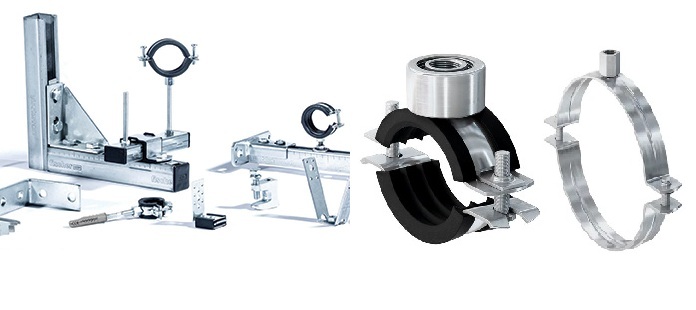Modular MEP support system refers to a system of modular components designed to provide support to mechanical, electrical, and plumbing (MEP) systems in buildings. These components are typically made of metal and are designed to be adjustable and flexible, allowing for easy installation and modification.
The modular MEP support system typically consists of channels, brackets, clamps, and other components that can be easily connected together to form a support structure for MEP systems. The system is designed to be flexible and can be easily adapted to fit the specific requirements of each building and MEP system.
One of the key benefits of a modular MEP support system is that it can help to reduce installation time and costs. The modular components can be quickly and easily assembled on site, reducing the need for custom fabrication and allowing for faster installation.
In addition, the modular MEP support system can help to improve the overall quality of the installation. The components are designed to provide precise and stable support for MEP systems, helping to prevent vibration, noise, and other issues that can impact the performance of the systems.
Overall, a modular MEP support system can provide a flexible and cost-effective solution for supporting MEP systems in buildings. Reducing installation time and improving the quality of the installation, it can help to improve the performance and efficiency of MEP systems, leading to a more comfortable and sustainable building environment.
Modular MEP support system, coordination entails locating critical system components in congested spaces not just to avoid obstructions but also to meet design, construction, and operational requirements.
Advantages of MEP Support
MEP (Mechanical, Electrical, and Plumbing) support can bring a variety of advantages to construction projects, including:
- Efficient design: MEP support can ensure that the mechanical, electrical, and plumbing systems of a building are designed in a coordinated and efficient manner. This can help to avoid conflicts and reduce the need for expensive redesigns.
- Cost savings: A well-designed MEP system can lead to cost savings in the long run by reducing energy consumption, minimizing maintenance needs, and improving the overall lifespan of the building.
- Improved comfort and safety: Properly designed MEP systems can provide a comfortable and safe environment for occupants. For example, a well-designed HVAC system can maintain a comfortable temperature and humidity level, while an effective plumbing system can ensure safe water quality.
- Compliance with regulations: MEP support can help ensure that the building meets local and national regulations and codes for safety, environmental sustainability, and accessibility.
- Enhanced sustainability: MEP support can contribute to a more sustainable building by optimizing energy efficiency, reducing waste, and minimizing the building’s carbon footprint.
Overall, MEP support can improve the quality, efficiency, and sustainability of construction projects, leading to benefits for building owners, occupants, and the environment.

